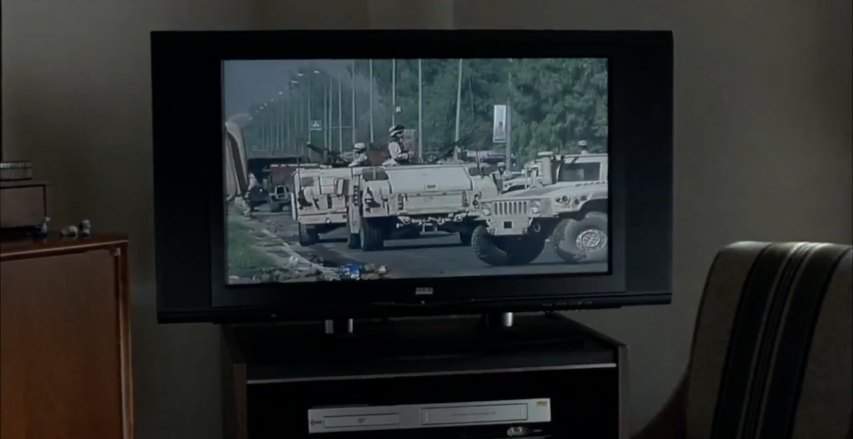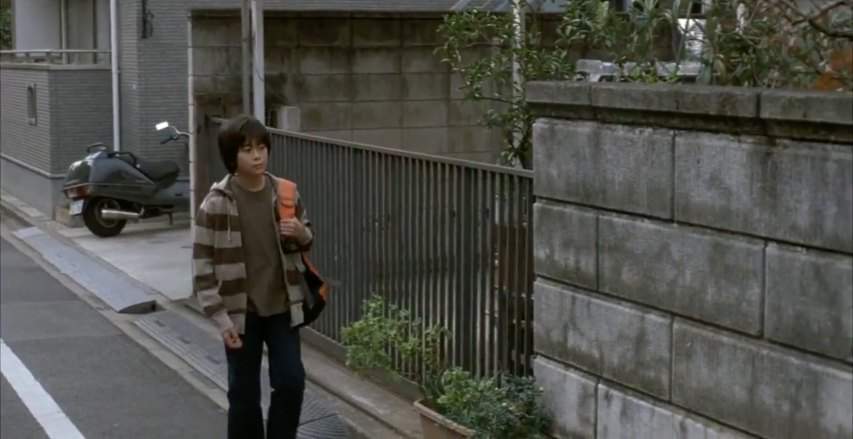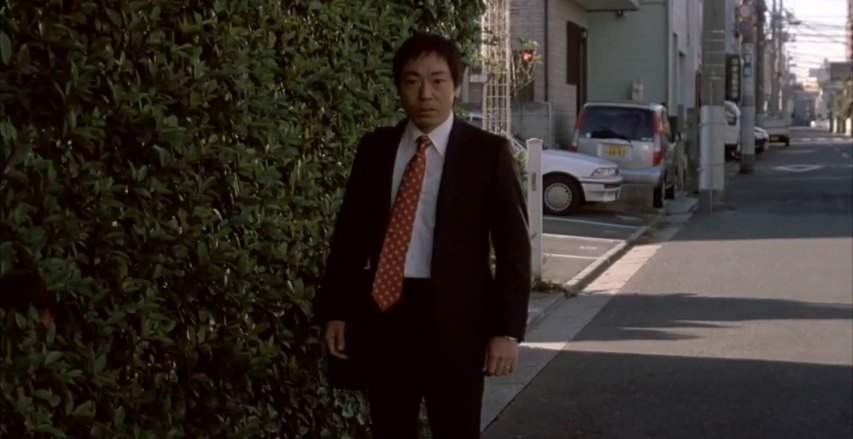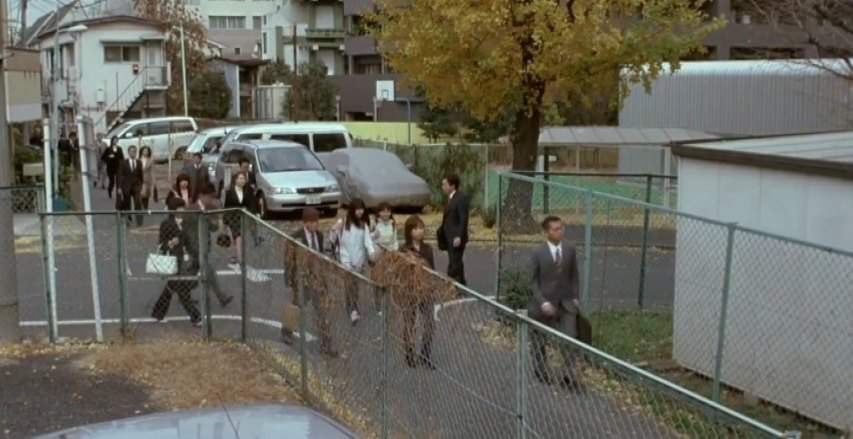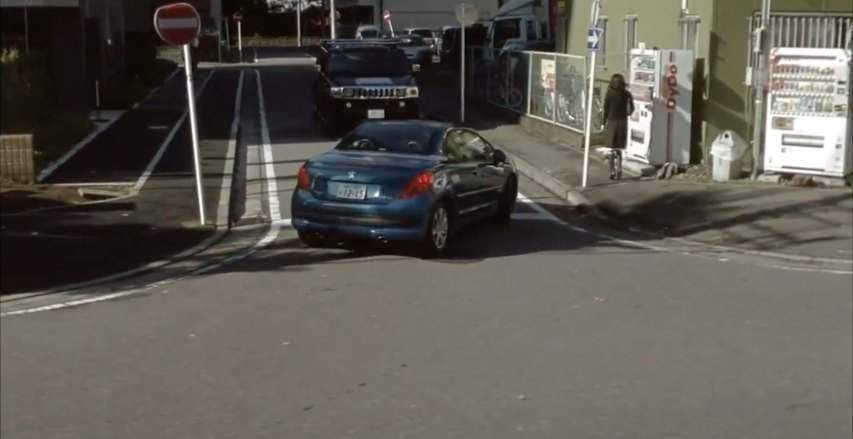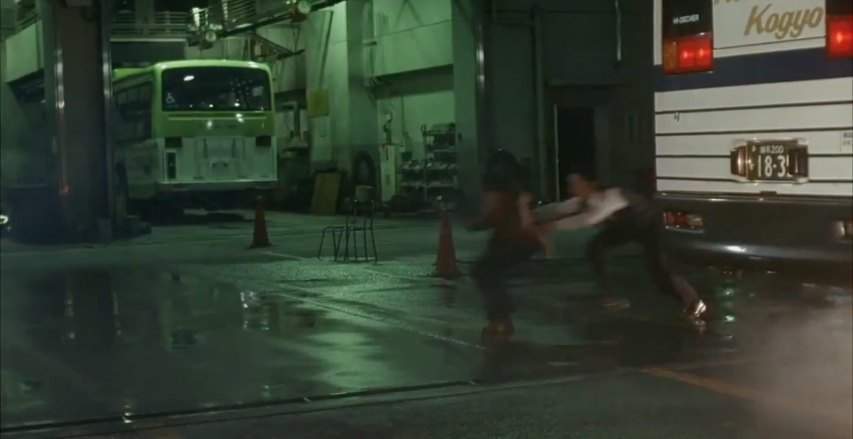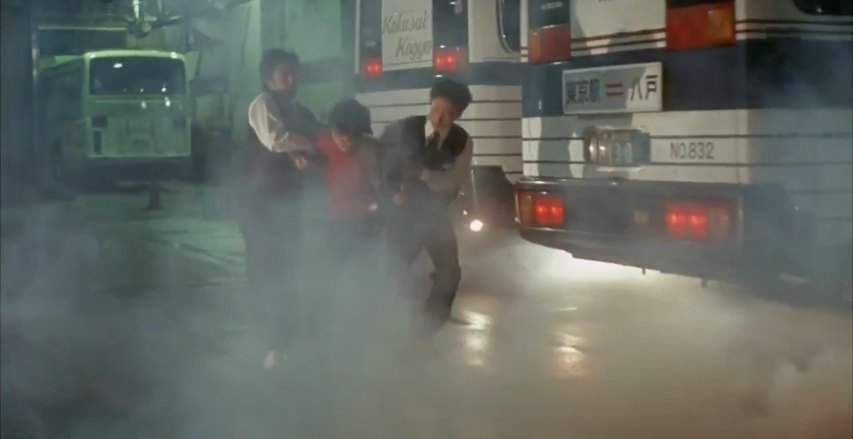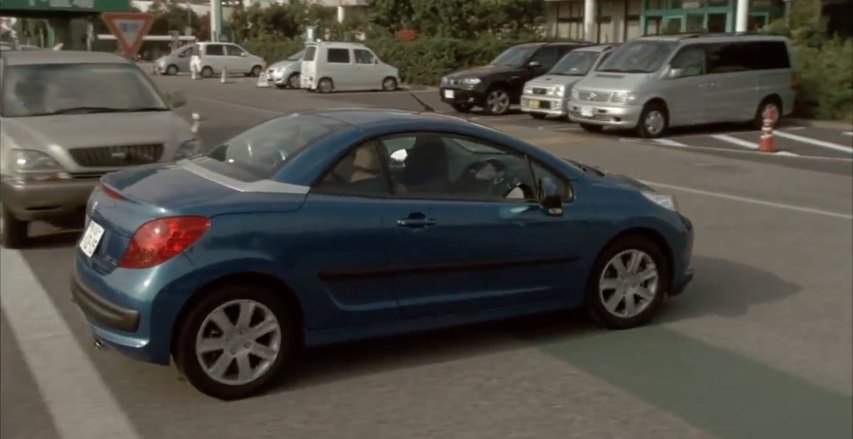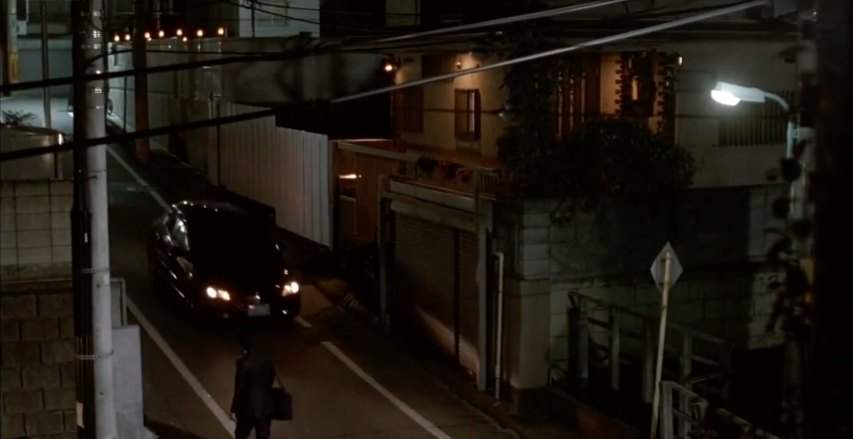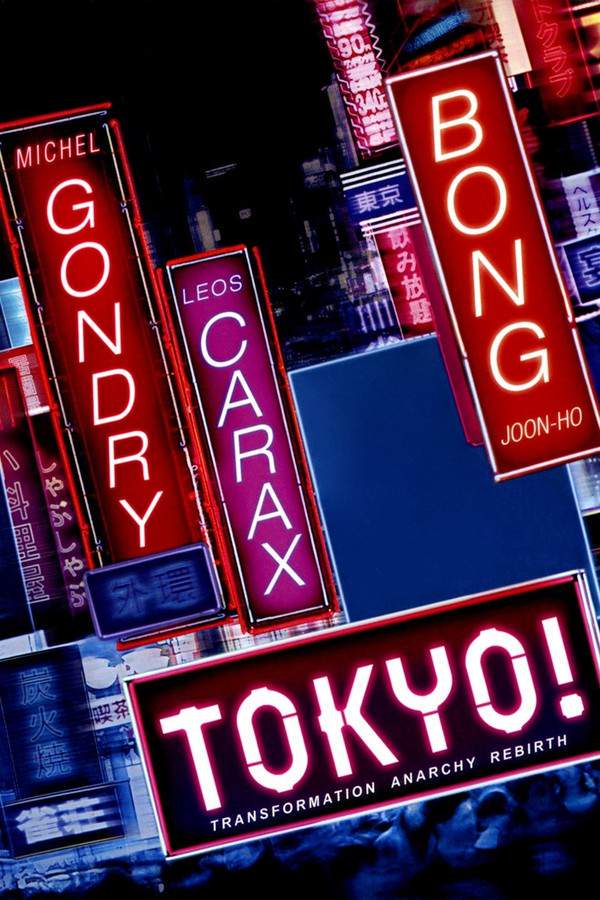Tokyo Sonata 2009
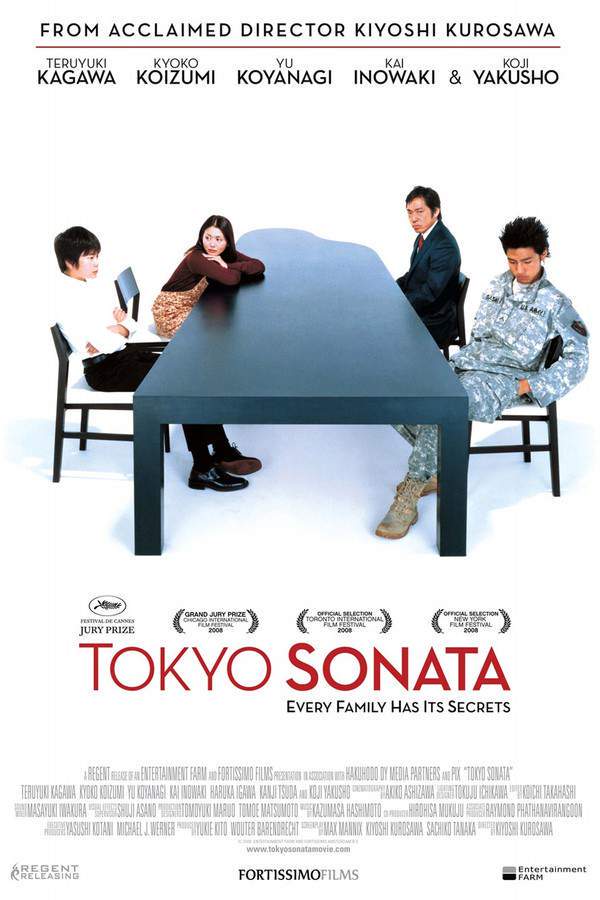
A Japanese family struggles to maintain appearances as personal hardships emerge. The father unexpectedly loses his job, while the eldest son is preoccupied with college, creating distance between them. The youngest son harbors a secret passion for playing the piano, further complicating family dynamics. As the mother grapples with these challenges, the carefully constructed facade of their lives begins to crumble, revealing hidden tensions and threatening their relationships.
Does Tokyo Sonata have end credit scenes?
No!
Tokyo Sonata does not have end credit scenes. You can leave when the credits roll.
Meet the Full Cast and Actors of Tokyo Sonata
Explore the complete cast of Tokyo Sonata, including both lead and supporting actors. Learn who plays each character, discover their past roles and achievements, and find out what makes this ensemble cast stand out in the world of film and television.
External Links and Streaming Options
Discover where to watch Tokyo Sonata online, including streaming platforms, rental options, and official sources. Compare reviews, ratings, and in-depth movie information across sites like IMDb, TMDb, Wikipedia or Rotten Tomatoes.
Ratings and Reviews for Tokyo Sonata
See how Tokyo Sonata is rated across major platforms like IMDb, Metacritic, and TMDb. Compare audience scores and critic reviews to understand where Tokyo Sonata stands among top-rated movies in its genre.

80
Metascore
8.4
User Score


94%
TOMATOMETER

80%
User Score

74
%
User Score
Take the Ultimate Tokyo Sonata Movie Quiz
Challenge your knowledge of Tokyo Sonata with this fun and interactive movie quiz. Test yourself on key plot points, iconic characters, hidden details, and memorable moments to see how well you really know the film.
Tokyo Sonata Quiz: Test your knowledge of the poignant family dynamics and emotional struggles in the film Tokyo Sonata.
What job does Ryūhei lose in the movie?
Office worker
Factory worker
Teacher
Janitor
Show hint
Full Plot Summary and Ending Explained for Tokyo Sonata
Read the complete plot summary of Tokyo Sonata, including all major events, twists, and the full ending explained in detail. Explore key characters, themes, hidden meanings, and everything you need to understand the story from beginning to end.
Tokyo Sonata tells the poignant story of the Sasaki family, consisting of Ryūhei, his wife Megumi, a dedicated housewife, and their two sons, the late-teen Takashi and the middle-schooler Kenji. Within their household, emotional connections are scarce, and genuine communication is a rare occurrence.
After losing his stable office job due to his company’s decision to hire cheaper labor from China, Ryūhei finds himself in a state of growing desperation as he struggles to secure new employment. He reconnects with an old classmate, Kurosu, who has faced a similar fate. Both men conceal the harsh truths of their circumstances from their families, bonding over shared woes. However, tragedy strikes when Ryūhei discovers that Kurosu and his wife have tragically taken their own lives, presumably due to Kurosu’s overwhelming despair.
Meanwhile, driven by noble intentions, Takashi decides to enlist in the United States military, a choice that deeply angers Ryūhei and saddens Megumi. On the other hand, Kenji grapples with guilt after inadvertently causing his classmates to insult their teacher. Eager to learn the piano despite his father’s adamant disapproval, Kenji secretly starts taking lessons from a kind-hearted teacher, Miss Kaneko, using his lunch money to pay for them and practicing on a damaged keyboard he salvaged from the trash. As he hones his skills, he and Miss Kaneko grow close, with her recognizing his exceptional talent and encouraging him to follow his musical dreams. When his parents uncover his secret lessons, a furious Ryūhei lashes out in anger, physically hurting Kenji and sending him tumbling down the stairs, leading to a minor concussion.
In a bizarre turn of events, Megumi, who feels increasingly isolated and worries about Takashi, becomes a hostage to a desperate burglar in their own home. The robber forces her to drive a car he has stolen, but during a stop at a mall, she has a moment to escape. However, upon unexpectedly encountering a distraught Ryūhei, now working as a low-paid janitor, she chooses to return to her captor, and they slowly develop a connection as they continue to journey without a clear destination.
That evening, all three family members confront their personal crises away from home. Kenji, after trying to assist a friend fleeing from an abusive father, is caught by the police and held in an adult cell overnight but is soon released. Megumi continues her travels with the burglar, spending the night in a shed by the sea. Despite the robber’s initial advances, he is unable to proceed, and they find solace in each other’s company. However, when Megumi sees a distant light on the horizon, the robber’s despair deepens as he cannot perceive the hope it represents. The next day, the robber drives the stolen vehicle into the ocean, leading Megumi back home.
Simultaneously, Ryūhei stumbles upon a stash of cash at his janitorial job but is then struck by a speeding vehicle, left unconscious but waking up surprisingly intact to abandon the money the following day.
Eventually, Kenji, Megumi, and Ryūhei find themselves back together at home, engaging in a mundane meal that lacks any acknowledgment of their individual journeys. Four months later sees the family adjusting to the new status quo—Ryūhei continuing his janitorial role, Takashi opting to remain in the Middle East despite Japan’s withdrawal orders. The film culminates with Kenji flawlessly performing Claude Debussy’s “Clair de Lune” at an audition, evoking tears from his parents as the entranced audience watches their family share this tender moment together.
Uncover the Details: Timeline, Characters, Themes, and Beyond!

Coming soon on iOS and Android
The Plot Explained Mobile App
From blockbusters to hidden gems — dive into movie stories anytime, anywhere. Save your favorites, discover plots faster, and never miss a twist again.
Sign up to be the first to know when we launch. Your email stays private — always.
Watch Trailers, Clips & Behind-the-Scenes for Tokyo Sonata
Watch official trailers, exclusive clips, cast interviews, and behind-the-scenes footage from Tokyo Sonata. Dive deeper into the making of the film, its standout moments, and key production insights.
Cars Featured in Tokyo Sonata
Explore all cars featured in Tokyo Sonata, including their makes, models, scenes they appear in, and their significance to the plot. A must-read for car enthusiasts and movie buffs alike.
Tokyo Sonata Themes and Keywords
Discover the central themes, ideas, and keywords that define the movie’s story, tone, and message. Analyze the film’s deeper meanings, genre influences, and recurring concepts.
Tokyo Sonata Other Names and Titles
Explore the various alternative titles, translations, and other names used for Tokyo Sonata across different regions and languages. Understand how the film is marketed and recognized worldwide.
Similar Movies To Tokyo Sonata You Should Know About
Browse a curated list of movies similar in genre, tone, characters, or story structure. Discover new titles like the one you're watching, perfect for fans of related plots, vibes, or cinematic styles.
Quick Links: Summary, Cast, Ratings, More

What's After the Movie?
Not sure whether to stay after the credits? Find out!
Explore Our Movie Platform
New Movie Releases (2026)
Famous Movie Actors
Top Film Production Studios
Movie Plot Summaries & Endings
Major Movie Awards & Winners
Best Concert Films & Music Documentaries
Movie Collections and Curated Lists
© 2026 What's After the Movie. All rights reserved.

















